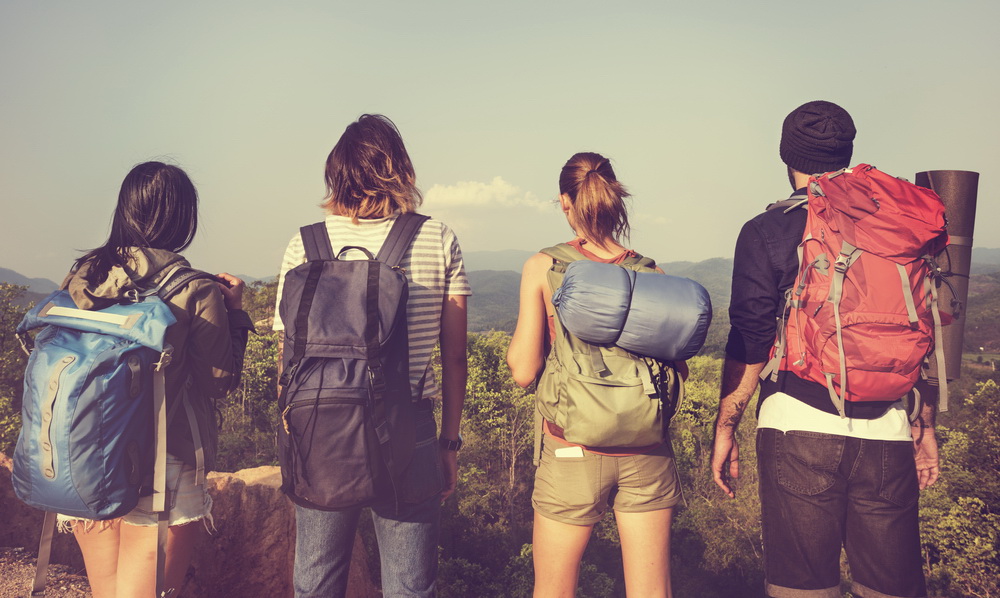Embarking on a backpacking journey is an exhilarating experience that blends the thrill of adventure with the joys of discovery. However, the nomadic lifestyle of a backpacker demands careful preparation, adaptability, and a keen sense of resourcefulness. Below, you’ll find essential tips to help you navigate the complexities of backpacking, ensuring that your trip is not only successful but also unforgettable.

1. Pre-Trip Planning: The Foundation of a Great Adventure
Research Your Destination
Before you even start packing, immerse yourself in understanding the destination. Know the local customs, language basics, weather patterns, and cultural norms. This knowledge will not only help you blend in but also keep you respectful and safe.
Budget Wisely
Set a realistic budget, keeping in mind accommodation, transportation, food, and unforeseen expenses. Always allocate an emergency fund—life on the road is unpredictable, and being financially prepared can be a lifesaver.
Vaccinations and Health Precautions
Some regions may require specific vaccinations or medications. Consult with a travel clinic to ensure you’re up-to-date with all necessary health precautions. Carry a basic first aid kit tailored to your destination’s unique challenges.
2. Packing Smart: Travel Light, Travel Right
Essential Gear
Invest in a high-quality backpack with good support and sufficient space. Choose one with multiple compartments for better organization. The weight should ideally be no more than 20% of your body weight.
Multi-purpose clothing is key. Opt for moisture-wicking, quick-dry fabrics that can be layered. A rain jacket, a warm fleece, and a versatile pair of shoes are must-haves. Remember, you can always do laundry on the go.
Minimalism in Packing
Adopt a minimalist approach. Avoid packing unnecessary items. A well-thought-out packing list should include only the essentials: toiletries, a lightweight towel, a few clothes, and compact electronics like a power bank and a universal adapter.
Pack with security in mind. Use a money belt to keep your cash, passport, and cards safe. Consider a small lock for your backpack and a waterproof cover for unexpected weather conditions.
3. On the Road: Navigating the Backpacker Lifestyle
Accommodation Choices
Hostels are the quintessential backpacker lodgings. They are not only budget-friendly but also great places to meet fellow travelers. Websites and apps like Hostelworld or Booking.com can help you find accommodations with good reviews.
Consider Couchsurfing for a more immersive experience. Staying with locals offers a unique cultural perspective and often leads to friendships that outlast your journey.
Eating on a Budget
Street food is often the most authentic and affordable option. Be adventurous, but exercise caution by eating at places with a high turnover of customers. It’s a good indicator of fresh food.
Grocery shopping and cooking your meals is another way to save money. Many hostels offer communal kitchens where you can prepare simple meals. It’s also an opportunity to bond with other travelers.
Transportation: Getting Around Efficiently
Public transportation is your best friend. Buses, trains, and shared rides are usually the most economical means of travel. Download apps like Google Maps or Rome2Rio to help navigate routes and schedules.
For long distances, overnight buses or trains can save you both time and the cost of accommodation. However, always prioritize safety—opt for reputable companies and keep your belongings close.
Cultural Sensitivity
Respect the local culture at all times. Dress appropriately, especially in conservative areas, and learn a few key phrases in the local language. A simple greeting or thank you in the native tongue can go a long way.
4. Safety and Security: The Non-Negotiables
Stay Informed
Always be aware of your surroundings. Keep abreast of local news and potential risks. Register with your embassy if you’re traveling to a high-risk area, and always have a plan in case of an emergency.
Protect Your Belongings
Never leave your bag unattended. Use a small daypack for your essentials and keep it on you at all times. Be cautious with your gadgets and avoid displaying valuables publicly. Consider insurance for expensive items.
Health and Hygiene
Stay hydrated, especially in hot climates, and be mindful of food hygiene. Wash your hands regularly and carry hand sanitizer. If you’re trekking or exploring remote areas, water purification tablets can be invaluable.
5. Maximizing the Experience: Immersing Yourself Fully
Engage with Locals
The most enriching part of backpacking is the connections you make. Engage with locals, listen to their stories, and participate in cultural activities. This will deepen your understanding of the place and create memories that transcend the typical tourist experience.
Document Your Journey
Keep a travel journal or blog to document your experiences. Photos capture moments, but writing allows you to reflect on your journey in a more profound way. Years later, these records will serve as a cherished reminder of your adventures.
Be Flexible
While planning is essential, the beauty of backpacking lies in spontaneity. Be open to changes in your itinerary, embrace the unexpected, and let the journey unfold organically. Often, the most memorable experiences come from the unplanned.
Conclusion
Backpacking is more than just travel; it’s a way of life that fosters resilience, independence, and a deeper connection with the world. By following these tips, you’ll be well-equipped to handle the challenges and reap the rewards of the backpacker lifestyle. So, pack your bag, open your mind, and let the adventure begin!